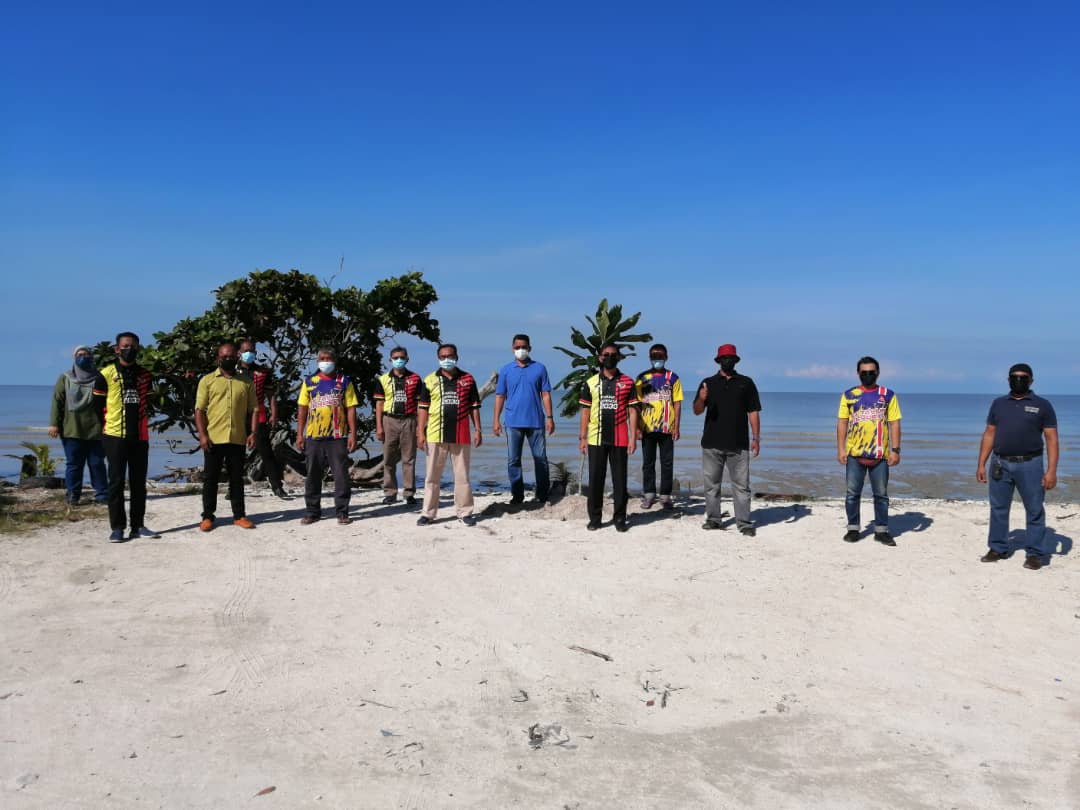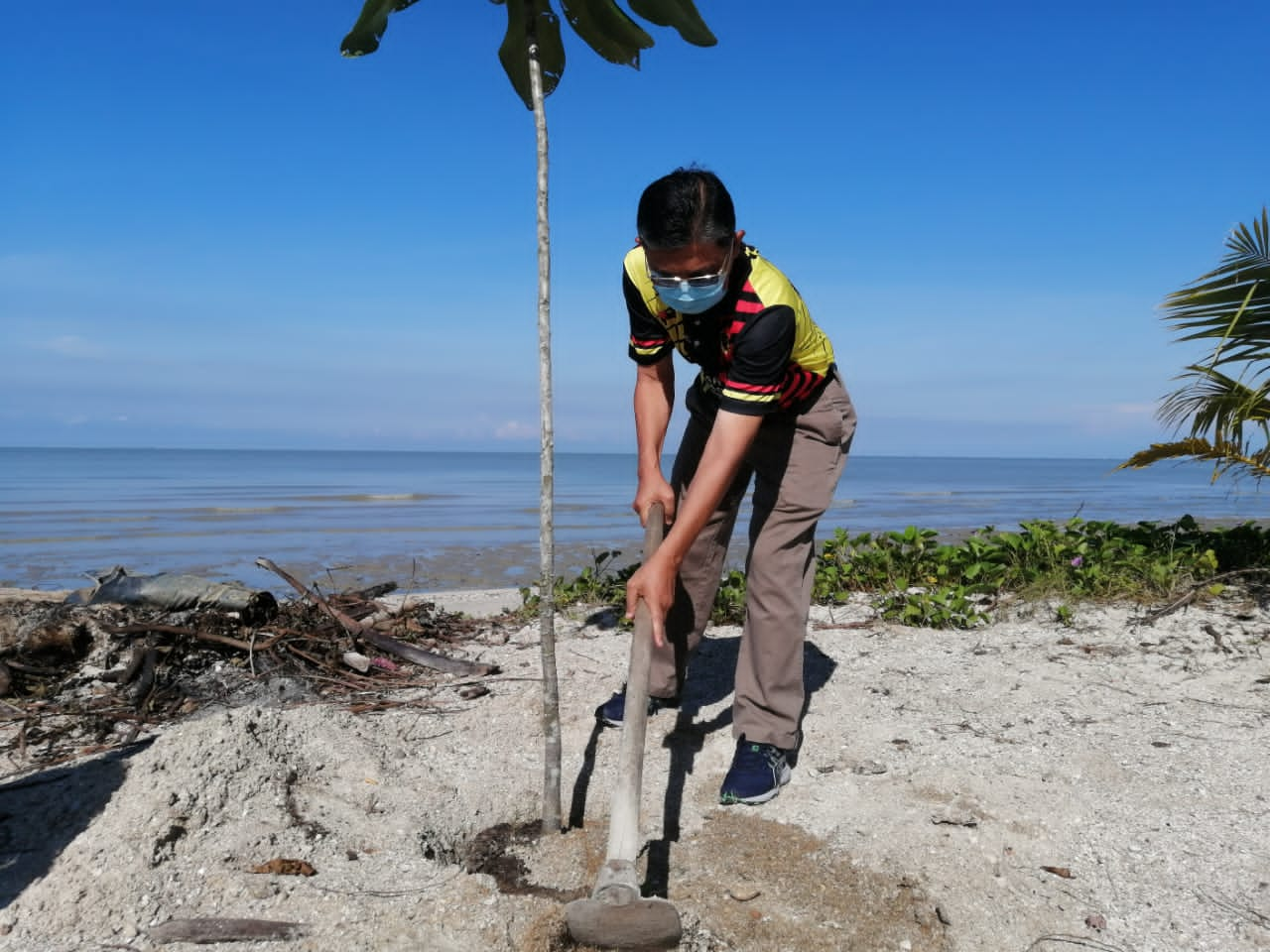As part of our community services & green initiative, We have sponsored the 'Putat Laut' tree seedlings for Beachside planting...

Barringtonia asiatica
Common name: Putat laut
is a tree of sandy seashores where its trunk often leans over the beach. It can grow to 30 m tall but more usually is 7–20 m tall. Its bunches of large, obovate leaves at the tips of the stout twigs are striking in their glossiness and size.

A small to medium sized tree (7-30m tall). Bark pinkish grey, smooth becoming rough and thick in older trees. It may have buttressed roots.
Leaves oval (20-30cm long), waxy glossy somewhat fleshy, edge smooth (not toothed). Young leaves may be pinkish olive with pink veins. Older leaves wither yellow or pale orange.eavy perfume becomes noticeable''.
By sunrise the next day, the entire circle of stamens and petals fall off the tree.
Corners says, ''The ring of stamens floating downstream and the stale perfume of the night used to be a morning feature of Malayan rivers''.
It is the food plant for moth larvae of Dasychira spp. and Thyas honesta.

Barringtonia asiatica is indigenous to the mangrove habitats in the tropics from Madagascar, to Malaysia, Taiwan, Philippines, northern Australia and Polynesia.
Together we can make the ‘GREEN’ differences!








 BR 40581
BR 40581  US 14363
US 14363  VN 8577
VN 8577  AR 3745
AR 3745  MX 3120
MX 3120  GB 2370
GB 2370  CO 2030
CO 2030  MY 1820
MY 1820 

